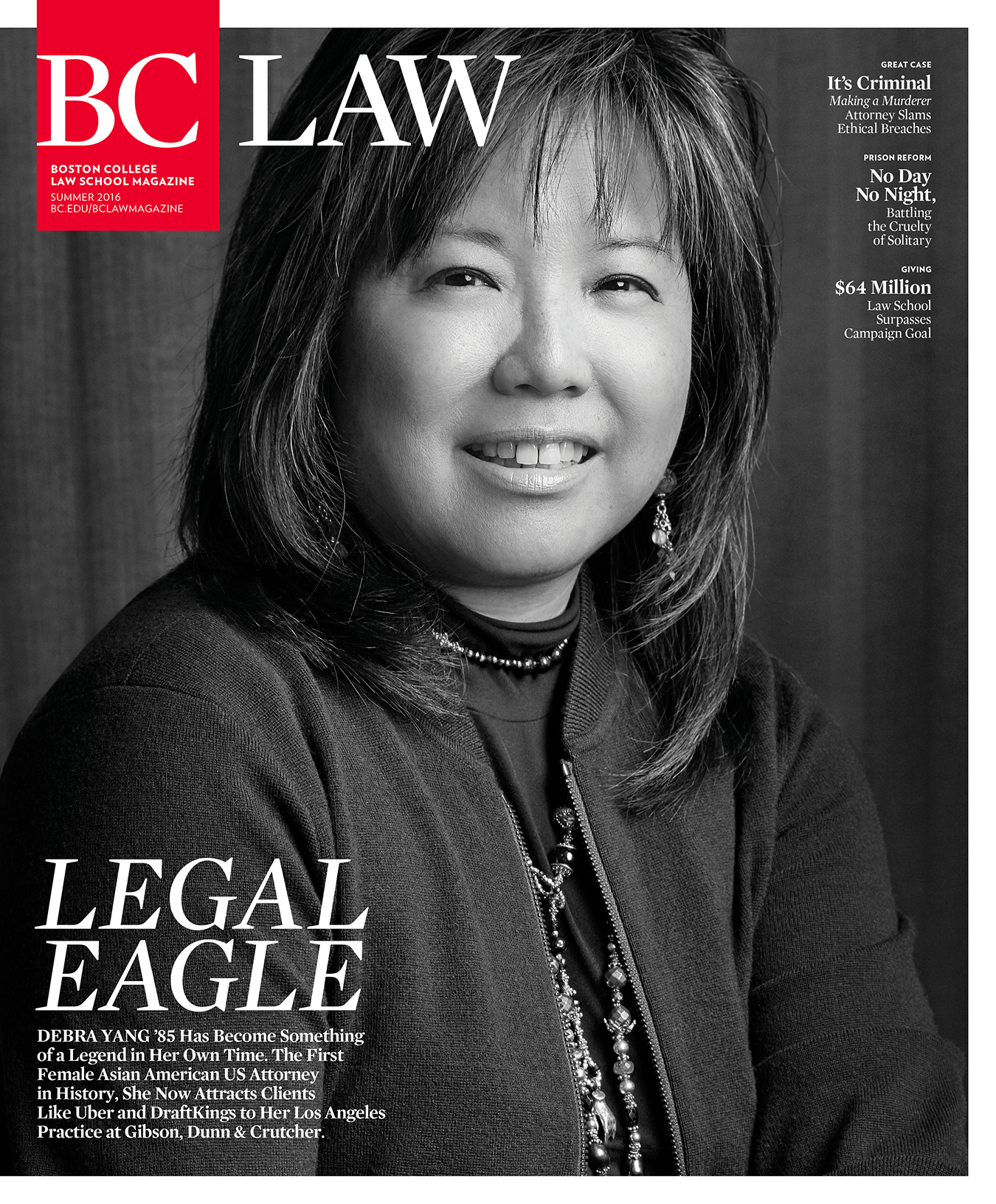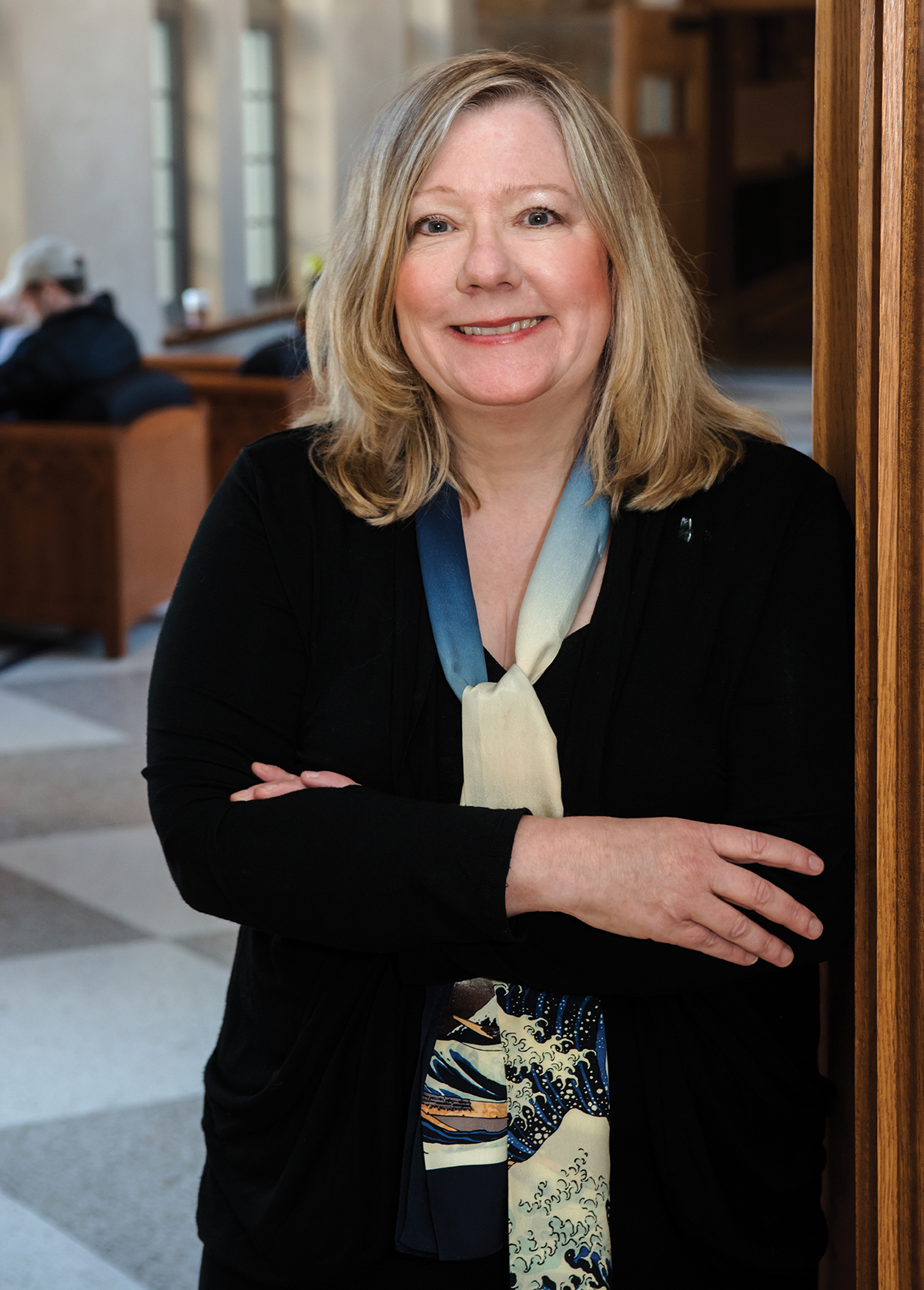Like so many, Cathleen Kaveny thinks our current political climate is “almost hopelessly polarized.” But we shouldn’t despair. It turns out the way forward lies in turning way back—about three thousand years back, actually, to the scriptural rhetorical tool known as the jeremiad.
In her latest book, Prophecy Without Contempt: Religious Discourse in the Public Square (Harvard University Press), Kaveny plumbs the history of the jeremiad and shows why it should be revived today. Named after the prophet Jeremiah, a jeremiad is a literary condemnation of a people (in Jeremiah’s day, the Hebrews) who’ve strayed from an agreed-upon covenant with God.
“A jeremiad is not a rant. It’s more like a step-by-step legal indictment. You want to condemn the behavior—but without contempt. Because you ultimately want to bring that violator to reconciliation within the community.” —Professor Cathleen Kaveny
“A jeremiad is not a rant,” explains Kaveny, Darald and Juliet Libby Professor of Law and Theology at Boston College. “It’s more like a step-by-step legal indictment. You want to condemn the behavior—but without contempt. Because you ultimately want to bring that violator to reconciliation within the community.”
Kaveny, who is the current president of the Society of Christian Ethics, also traces how the jeremiad has deep American roots. “Our country was founded, in part, by Puritans who set up a colony that was based on a covenant with God,” explains this Rhode Island native who came to BC from Notre Dame in 2014. On fasting days, election days, and other special times, the Puritans would gather to hear preachers issue jeremiads that blasted the people’s spiritual inadequacies.
It sounds funny to say, but the Puritans loved jeremiads,” says Kaveny. “Yet as the nation grew, and became more pluralistic, the terms of the covenant started to shift. The new covenant would be between the people and the Declaration of Independence, or the people and the Constitution.”
Kaveny holds that the modern gold standard for the jeremiad was Martin Luther King’s “I Have a Dream” speech. “He was calling to account a nation in violation of the covenant that states ‘all men are created equal,’” she says. “Dr. King wasn’t saying ‘You bad white people did these bad things.’ He didn’t want his political opponents erased. He wanted them to see that their actions were hurting the country, and thus themselves.”
This year also brought the publication of another Kaveny book, A Culture of Engagement: Law, Religion, and Morality (Georgetown University Press). It’s a collection of fifty-six of her columns from Commonweal and they all, she says, “offer a vision of how the church should relate to the world.” Kaveny, who attended Princeton undergrad, and Yale for her JD and PhD, composes artful, jargon-free commentaries, with humor and grit. “Writing a column is like landing a plane,” she’s learned. “You have to reevaluate each angle as you come in, and you have to stop before you get to the end of the runway.”
In A Culture of Engagement, she engages in a broad range of issues, from both a judicial and theological perspective. These include the Hobby Lobby case, which asked for a religious exemption from the contraception mandate in the Affordable Care Act, or the Bush administration’s controversial “torture memo,” or the ethics of assisted suicide.
Today, Kaveny teaches contract law to first-year law students, plus a number of seminars that tackle the relationship between law, philosophy, and theology, such as “Bioethics and the Law” and “Mercy and Justice.” But before she became a law professor, Kaveny clerked for Judge John T. Noonan Jr. (to whom Prophecy Without Contempt is dedicated) on the Ninth Circuit Court of Appeals. And she was a health care lawyer at Ropes & Gray.
“I knew that if I wanted to teach law, I had to practice law,” she says. “A great lawyer pursues questions around what a client needs, but I found I really enjoyed pursuing questions for their own sake.”
Readers can enjoy her next pursuit soon in Ethics at the Edges of Law: Christian Ethics and the American Legal Tradition, forthcoming from Oxford University Press. All three of these recent books testify that “law is not a random set of commands or prohibitions,” says Kaveny. “It’s about how we can live our life together.”



